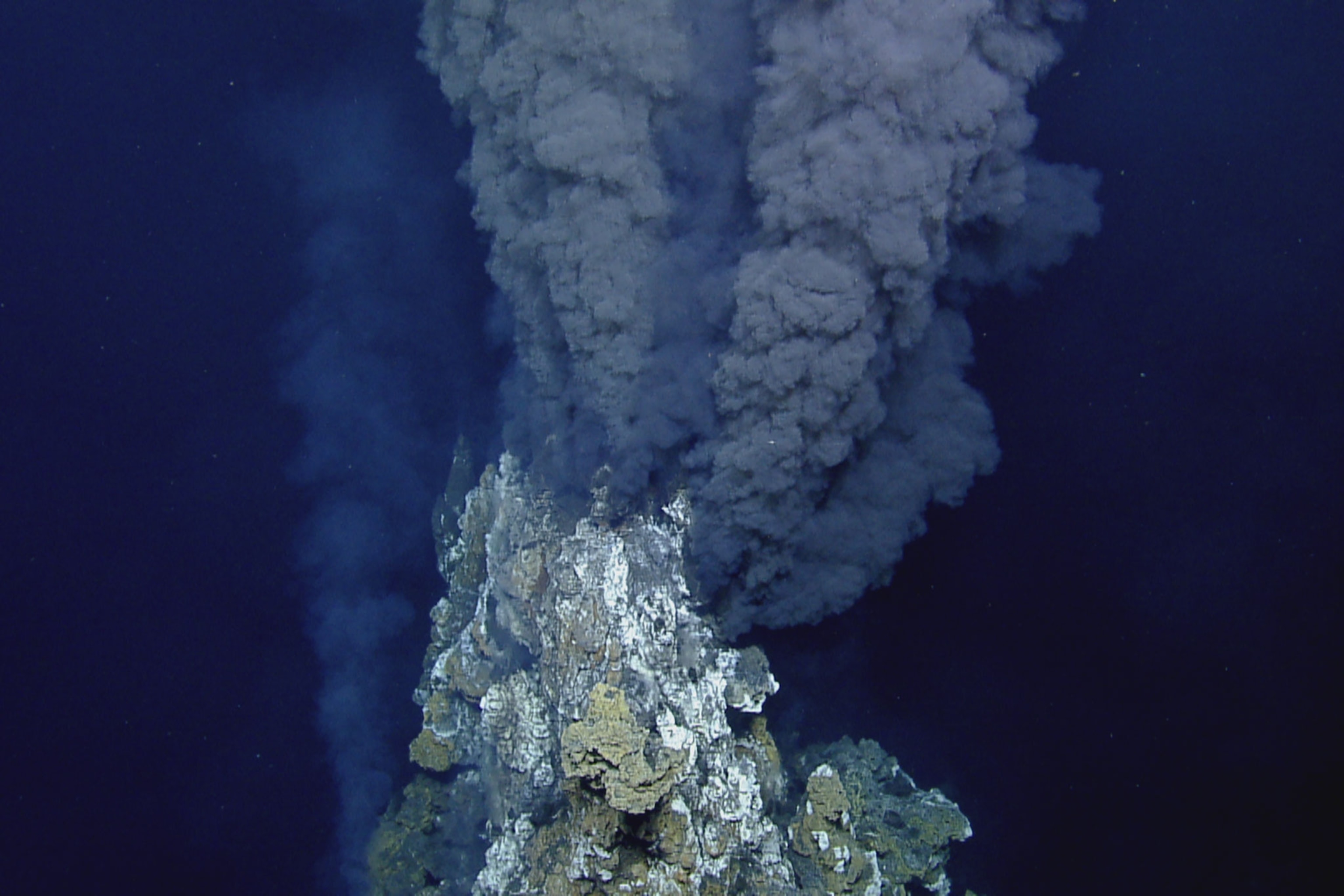This Deep-Sea Creature Lays Its Eggs on Hydrothermal Vents—A First
The Pacific white skate lay its eggs on superheated hydrothermal vents, and then may wait more than four years for the eggs to hatch.
The world’s most patient mom may be a deep-sea octopus that tends her eggs for nearly 4.5 years. But now, there may be a new contender for her throne.
Scientists have caught a rare glimpse of another deep-sea dweller that may also spend four or more years nursing its eggs, and it does it in an even more unusual place: on hydrothermal vents, where hot water spews from the ocean floor.
It’s called the Pacific white skate (Bathyraja spinosissima), a bone-white, bug-eyed relative of sharks that can live almost two miles (2,900 meters) underwater.

In June of 2015, scientists piloting a remotely operated vehicle through the depths of the Galapagos Marine Reserve discovered mounds upon mounds of Pacific white skate egg-casings littered atop a hydrothermal vent. Using the submarine’s robotic arm, the scientists plucked four of the yellow-green egg-cases—each about the size of a deflated football—and brought them back to the surface for DNA analysis.
This the first time skates have been found to use hydrothermal vents as nurseries, and the scientists suspect the animals are laying their eggs here for a reason.
It takes longer for eggs to incubate in cold water, so the skates may be warming them up on the vents, says Dr. Pelayo Salinas-de-León, a National Geographic Society Explorer who led the study, described in the journal Scientific Reports.
The team estimates that, like the deep-sea octopus, Pacific white ray egg cases may require more than four years to hatch, judging by the incubation time of a closely related skate in the Berendt Sea and the depth and temperature of the water surrounding the vent.
And that’s a “very conservative” estimate, adds Salinas-de-León, who is also a marine scientist with the Charles Darwin Foundation and National Geographic's Pristine Seas initiative.
A Whole New World
Since hydrothermal vents were first discovered in 1977, scientists have found crabs, anemones, mollusks, and shrimp inhabiting these seemingly inhospitable environments.
But until now, no one would have included skates on that list, says Dr. Lisa Levin, a professor of biological oceanography at the University of California, San Diego.

“We know so little about the functions of these systems that finding a new function, like being a nursery habitat, is very important,” says Levin.
Interestingly, Levin says there have been a handful of sightings of skate eggs near cold seeps, which are similar to hydrothermal vents but lack heat and emit methane.
The water shooting out of a hydrothermal vent can exceed 750 degrees Fahrenheit (400°C), Salinas-de-León says, but as soon as it hits the near-freezing water of the deep sea, that plummets to just 36°F.
But even just a few degrees of warmth around the mouth of the vents could be enough to reduce the skate eggs’ incubation time by months or even years, says Salinas-de-León.
The only other animals known to use Earth’s warmth for egg incubation are the mound-building megapode birds of Southeast Asia and Australia and a group of nest-building neosauropod dinosaurs from the Cretaceous Period, he says.
Plumes In Peril
You might think that a bubbling cauldron at the bottom of the ocean would be relatively safe from humans and our impacts, but even these remote areas are threatened.
Hydrothermal vents are being targeted for deep seabed mining, and the oil and gas industry drills on the margins of methane cold seeps.

The new findings suggest that skates may be more at risk for overfishing than previously thought, since exceptionally long incubation times mean the animals’ populations can’t bounce back quickly.
“The idea of skates using heat to incubate their young, much like some dinosaurs, is likely to invoke fascination and maybe even a little sympathy,” says Sonja Fordham, president and founder of the conservation organization Shark Advocates International.
“We hope that exciting new findings like those in this paper can help to spark greater interest in skates and, in turn, a greater constituency for conserving them,” says Fordham.
Salinas-de-León, too, sees the discovery as a mandate to protect these unique and relatively unexplored ecosystems.
"We hardly know anything about the deep sea, and we are fishing, and mining, before we even get a chance to even document what species live down there and what unique behaviors [they] could reveal [to] us,” he says.